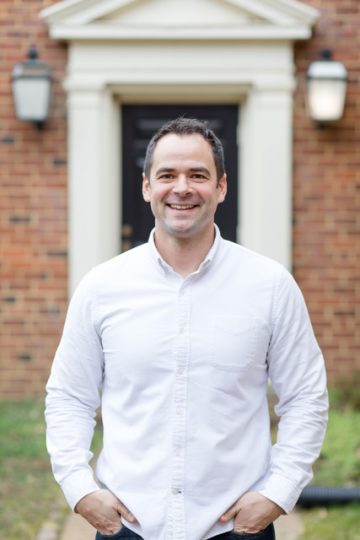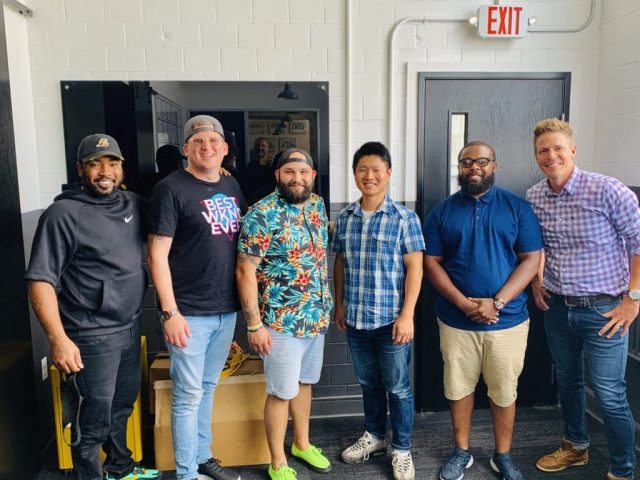Article
Church Planter Basics 4: Make Missionaries
Cliff Jordan
The problem in churches today is that we aren’t making missionaries. Planters would do well to see their churches as missionary training outposts for the kingdom of God.

The research and stats are a click away, but the reality is much closer: We are not in a Christian culture or context here in America.
Perhaps that is unsettling to some but to church planters the words of Jesus are ever so hopeful: “Open your eyes and look at the fields, because they are ready for harvest.” (John 4:35) Notice Jesus does not say look how hard things are, how impossible the soil is, how it has changed so much. No, He says the fields are ready!
The language of the harvest is appropriate in an agrarian context because most are trained to know when the harvest is ready. For our context, we have to train people to see the world around them differently, not as farmers but as missionaries. Only those looking for the harvest will see that it’s ready and engage the culture.
The problem today is that we aren’t making missionaries, so we look at the vexing stats with worry, rather than anticipation and opportunity.
I am sure there are multiple reasons for this predicament, but certainly at the top of the list is that we see the “mission field” as lots of other places, but not where we are. When missionaries are only the people sent far away, then those not sent far away are left only with sideline options.
The glaring omission is the option to see the harvest all around you, wherever God has you, and to engage with the hope of Christ to a world desperately in need. We are not making missionaries with eyes to see the readiness of the harvest all around us. At best, we are sending a few to faraway places. This is not to take away from those who go far, rather, it is to equip and engage those near to see themselves as missionaries to a culture here that is far from God.
We have made many things but one of them isn’t missionaries ready to engage the culture with the good news of Jesus and His kingdom. The stats make this abundantly clear. Whether we have made spectators, consumers, nationalists or social warriors – all devoid of the gospel – the reality is we have not made missionaries. We have not trained our people up to cross cultures for the sake of the gospel and to engage in meaningful ways.
The good news, however, is that we can start right now to correct that mistake! Church planting is the best place for missionary training because planters are either working with new believers that have been led to the Lord or with seasoned Christians who are willing to rethink who they are in the context of church.
Making missionaries is not an add-on to church planting. It is church planting.
I see three vital steps to making missionaries.
1. Recover biblical identity
The first step to making missionaries is to recover the biblical identity of God’s people as “missionary people.” It has been stated better by others, but the evidence is clear that God has a mission and His mission has a people. We do not wait until Matthew 28 before this appears in the story because it is laid out in the first two chapters of Genesis! There we see God’s mission is working in all of creation, for His own glory, by spreading His image throughout the earth. Not only does He have a mission, but His mission has a people. This carries over throughout the entire story, no matter the chapter. God’s mission is on display in the Garden, in Israel, in Christ and now in His Church. Those people who live out God’s mission, who are shaped by it, who shape their lives by it are missionaries. Before it is anything that we do differently, it is an identity to re-discover and embrace. The story of God must be the primary identity shaper of God’s people. We all seek stories to shape our identity and the aim of Bible preachers and teachers is to showcase the primary, compelling story of God. Otherwise a lesser story will shape – case in point – American Christianity.
We need to shift our language to more reflect and align with the over-arching story that clearly portrays God’s people as a missionary people. While some prefer “sent-ones” over “missionaries,” the reality is that language matters. Identity is both created by and sustained with the particular language of the sharing story we find ourselves in. We need language that forms an identity that sends us out into the world to cross cultures and engage in meaningful ways, whether that is down the street or across the world. We do that because it is who we are.
2. Build rhythms
Secondly, we must build a missiological liturgy into our people. Again, church planters are poised to do this before other liturgies are built into your church. We need rhythms that remind us of the grand story to keep people engaged in God’s mission. A sermon series or a good church planting prospectus isn’t enough. It needs to be clear and regular.
Basically we are a people who gather and scatter. Both are necessary for making missionaries, both have a missiological purpose and both must be explained how they fit into a missionary life. When we gather, we are coming together as a distinct people to celebrate a message that is otherworldly. Gathering in this way for this purpose brings a picture of the kingdom of God to this world. Making missionaries happens in this context and gathering in this way is missiological by nature. As missionaries, we should think about cultural expressions of our gathering that fit, where they can, with the culture we have been sent to, but regularly gathering for the purpose of celebrating God who became man, who lived and died in our place and rose again victoriously over sin and death will always be counter-cultural. Gathering around the person and work of Jesus will always have an edge to it. As we scatter, we are sent out into our various spheres of influence for the purpose of crossing cultures and engaging with the gospel. In other words, we come together to celebrate that message and then we are sent out, empowered by that message, to extend the kingdom to those around us. Some missionaries cross far cultures and some cross near cultures, but anytime a Christian engages a non-Christian they are crossing the culture of “in Christ,” to “not yet in Christ.”
3. Train missionaries
Thirdly, we need to train our people as traditional missionaries are trained because our people are missionaries. The identity of missionary has been established. The question is not whether we are missionaries but whether we are good ones. Good ones need to be trained. Traditional missionary training starts with seeing the context around them as “not home” territory. They look at their new culture with imagination, wonder and learning without “home” assumptions and privileges. Then they are trained to look for ways to translate the gospel message into a language the hearer can receive in his heart language. This takes cultural exegesis for the purpose of gospel sharing. Finally, the missionary traditionally is trained to make disciples in that culture and to start churches. Why are they trained so well, but we train our people so poorly?
Let’s rediscover missionary training and apply it in our “near” context. Yes, training someone to cross the cultural divide and engage the non’s of our day will look different than training someone to cross the cultural divide and engage Muslims in a predominantly Muslim culture. That difference, however, is smaller than we may think. Planters would do well to see their churches as missionary training outposts for the kingdom of God sent to whatever city, town or community they are in, for the purpose of engaging a “foreign to the gospel” culture with the good news of Jesus.




